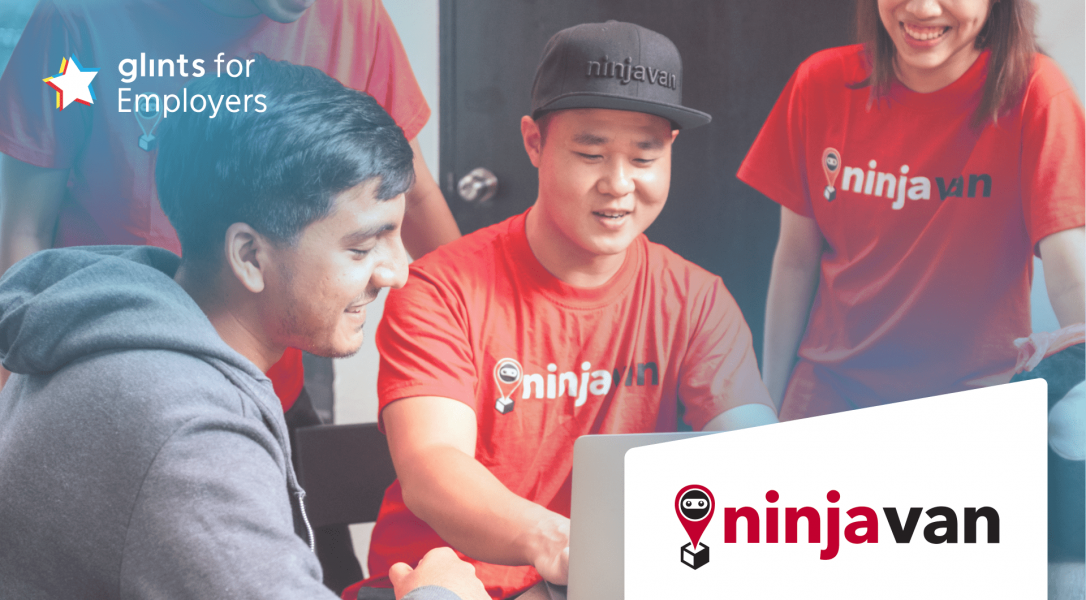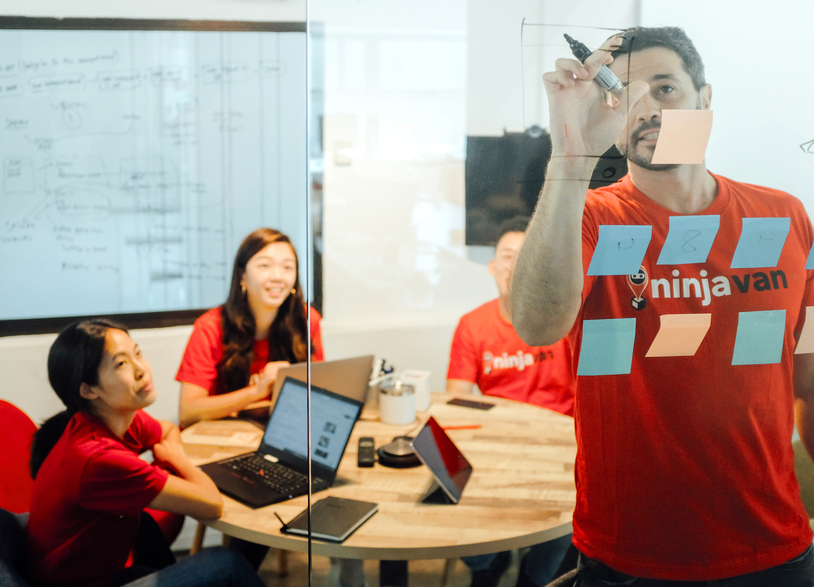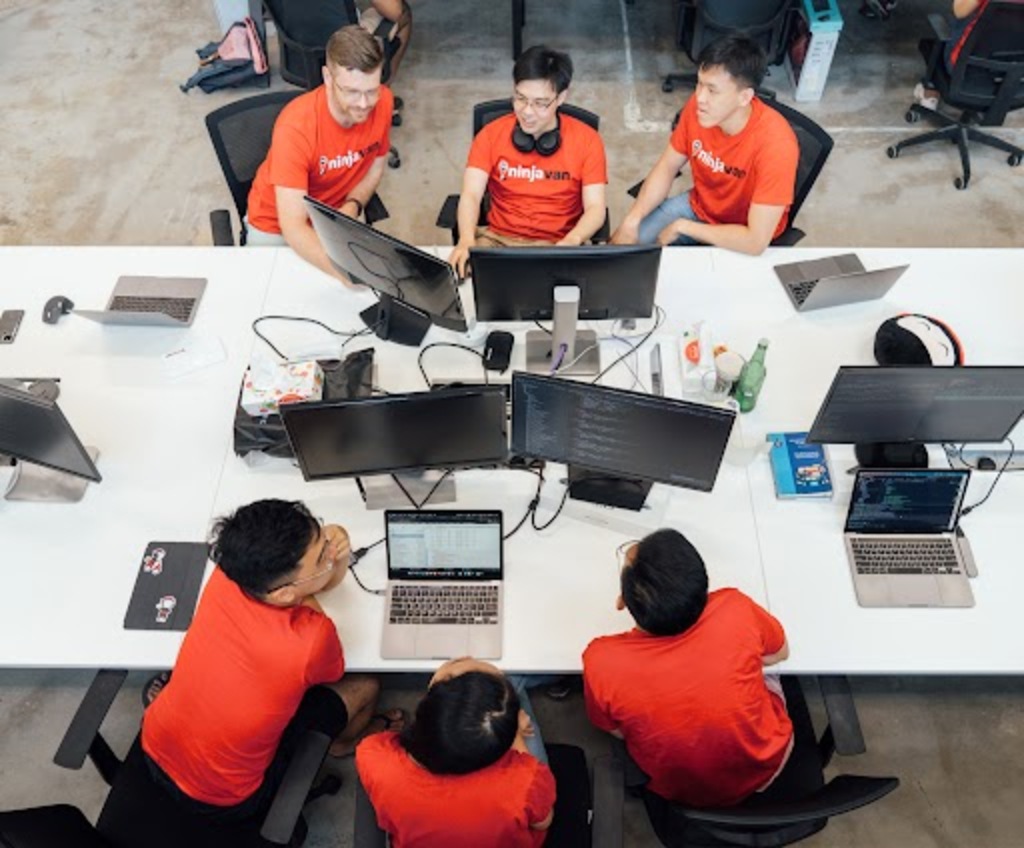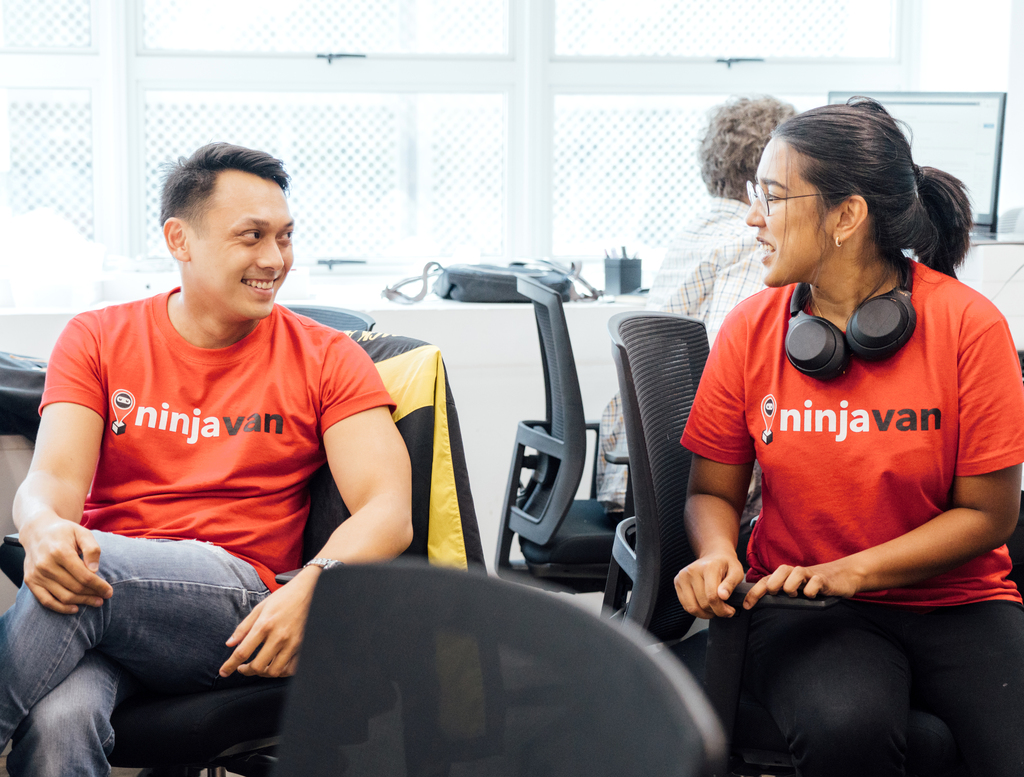The 3 secrets to empowering your workforce, according to Singaporean unicorn Ninja Van


Covid-19 has become a driving force in Greater Southeast Asia for growth, with innovation and digitalisation happening at an unprecedented pace. As businesses undergo rapid transformation, the way we think about the workforce has also dramatically shifted.
Our post-pandemic world has cast a stronger spotlight on tech talent, whose skill sets are becoming increasingly critical to the success of any forward-thinking organisation’s blueprints. Priorities are shifting on both individual and organisational levels. This means even the best talent must be reskilled, re-placed, and retained in pursuit of sustainable success.
Indeed, our knowledge-based economy has placed a premium on top-tier tech talent, elevating the need for learning and development (L&D) to cope with new demand. But beyond the scope of providing L&D opportunities, are employers really doing enough to foster a conducive workplace environment for both personal and professional growth?
Table of Contents
ToggleAccording to the Singapore Salary Guide 2022, 66% of employees find their current company’s learning and development (L&D) opportunities inadequate. This aligns with a recent LinkedIn report finding: two in five employees have left a company because they felt that it did not have a positive learning environment.
The bottomline is − today’s tech talent who know their value want to grow with a company that prioritises their progress.
In an increasingly competitive business landscape, such talent transformation is only possible through well-structured, well-executed L&D offerings. Building your talent takes on new meaning in an increasingly remote workforce. Beyond evolving with digital demands, it requires investing in employee growth at every level of your organisation, regardless of locality. It is the only way to attract and retain talent in the ongoing tech talent crunch.
For Singaporean unicorn Ninja Van, talent transformation was essential in shaping an agile workforce across six countries.

Launched in 2014, Ninja Van is today one of Southeast Asia’s largest tech-enabled logistics companies. It provides businesses with innovative solutions that optimise e-commerce opportunities in Singapore, Malaysia, Philippines, Indonesia, Thailand, and Vietnam – which creates employment opportunities for close to 67,000 workers.
“Our bread and butter has always been disruption and innovation,” said Timothy Ng, Deputy Head, Human Resources at Ninja Van Group. He shares how the startup’s comprehensive L&D strategy empowers employees to focus on their career goals, which boosts organisational growth in a mutually-beneficial environment.
Here are three lessons employers can take away from this success story.
Organisations which advocate a learning culture realise employee potential through a holistic learning and development approach – one that evolves over time. When Ninja Van first set up its L&D department in 2017, it largely offered external government-funded courses and Massive Open Online Courses (MOOCs). Though these provided broad learning opportunities for employees, the company knew it had to go granular.
While Ninja Van still uses external providers for general courses, it has now developed many of its L&D capabilities and training internally. More customised learning opportunities are provided, such as in-house training modules and specialised training for managers.
“We needed stronger control over certain aspects of the business like sales − we want to be very sure what our salespeople are selling and how they sell it. So internal training is essential,” Ng explained. On top of that, Ninja Van set up an L&D team in each country, which allowed it to consider local nuances when tailoring solutions to specific needs.
The Ninja University − which today offers learning opportunities for all employees − has received positive responses company wide. Employees have access to Ninja Van’s external course library, where they complete up to three external courses per financial year, sponsored by the company.
Ninja Van’s secret sauce, though, is its Competency Framework, which matches employees to suitable courses. The company created this framework by meticulously building a set of customised competencies for every role at the company − adapted from Singapore’s Skillsfuture Framework.
Each employee is able to view the skills and knowledge required for their role, as well as their corresponding competency levels. They then search the Ninja University catalogue for courses that match the skills they need to acquire. The result? Customised learning opportunities that support employees on their unique career journey.

Research from Ipsos shows how millennial employees across the world believe employers should invest in their future by providing skill training. While it is crucial to support new employees in their career growth, effective talent transformation also accounts for managers – the key changemakers in every department.
Ninja Leadership University champions managerial L&D by defining key skill sets, then developing suitable monthly training modules to fill the gaps. Topics include ‘giving feedback’, ‘how to delegate work’, and ‘motivating one’s team’.
New managers are inducted via Ninja Van’s New Manager Onboarding session and First-Time Ninja Manager Programme. The former takes them through a manager’s key administrative roles and educates them on job expectations and where to find available resources. The latter teaches them how to establish credibility as a first-time manager, and helps them discover more about their leadership style.
Beyond career and company growth, Ng believes training managers is also crucial to fostering desirable workplace culture. Culture – the company’s biggest retention factor – is largely influenced by managers.
“Managers are the reason why people stay or leave a company,” Ng shared. “In order to maintain a positive work culture, we decided to focus on in-house management training programmes.”
For companies like Ninja Van, talent transformation goes beyond attracting, motivating, and retaining employees. When we implement best practices in a value-based environment, they become ingrained in company culture. Fostering a strong culture may start with managers, but it extends to each employee’s job satisfaction.
Investing in L&D at every level shows employees that you care about their career growth – and you want them to grow with you. McKinsey & Company points out that effective L&D interventions today consist of continuous learning opportunities − a mix of digital learning, social learning, on-the-job coaching, and mentoring.
Ninja Van invests in long-term employment via the Individual Development Programme. This begins with each department defining what they would like to achieve for the year, and the positions they need filled. Employees are identified internally, with an Individual Development Plan created for them over the course of a year.
The programme contributed to a 93% retention rate among participating employees. Reflecting on its success, Ng said, “It takes the relationship with our employees beyond just transactional work, showing that we don’t just see them as the ‘role’ they fill, but as an individual with their own career goals.”

We know that jobs are changing faster than ever, but it wasn’t until the pandemic that many employers truly experienced the rapid pace of this transformation. A digital skills report commissioned by Amazon Web Services estimates that 1.2 million workers with digital skills need to be trained by 2025 to help make up for the tech talent deficit. Employers that embrace L&D are therefore investing in a future where talent transformation is the norm, which places them ahead of the competition.
Ninja Van’s efforts in transforming talent for a borderless future have earned favour with its employees, who see the company as a workplace where they can thrive long-term. “The company has come a long way in developing its HR policies and L&D department,” said Nicholas Lim, Regional Head, Subshipper Success Management. “The prevalent employee-centric culture gives me absolute confidence that we will be well taken care of down the road.”
Ninja Van is a winner of the Glints Best Employers Award 2022: Beyond Borders in the Talent Transformation category.
This article is brought to you by Glints TalentHub. Leading companies are actively building their borderless teams in Southeast Asia, Taiwan, and beyond. However, the prospect of going borderless can be daunting due to complex regulations and cultural ambiguities. With Glints TalentHub, you’ll have a dedicated team of in-market legal, HR, and talent experts by your side at every step of the way.
Glints TalentHub offers an end-to-end, tech-enabled talent solution that encompasses talent acquisition, EOR, and talent development. We empower businesses to leverage the strengths of regional talent efficiently to build high-performing, cost-efficient teams.
Schedule a no-obligation consultation with our experts to receive a tailored proposal today.